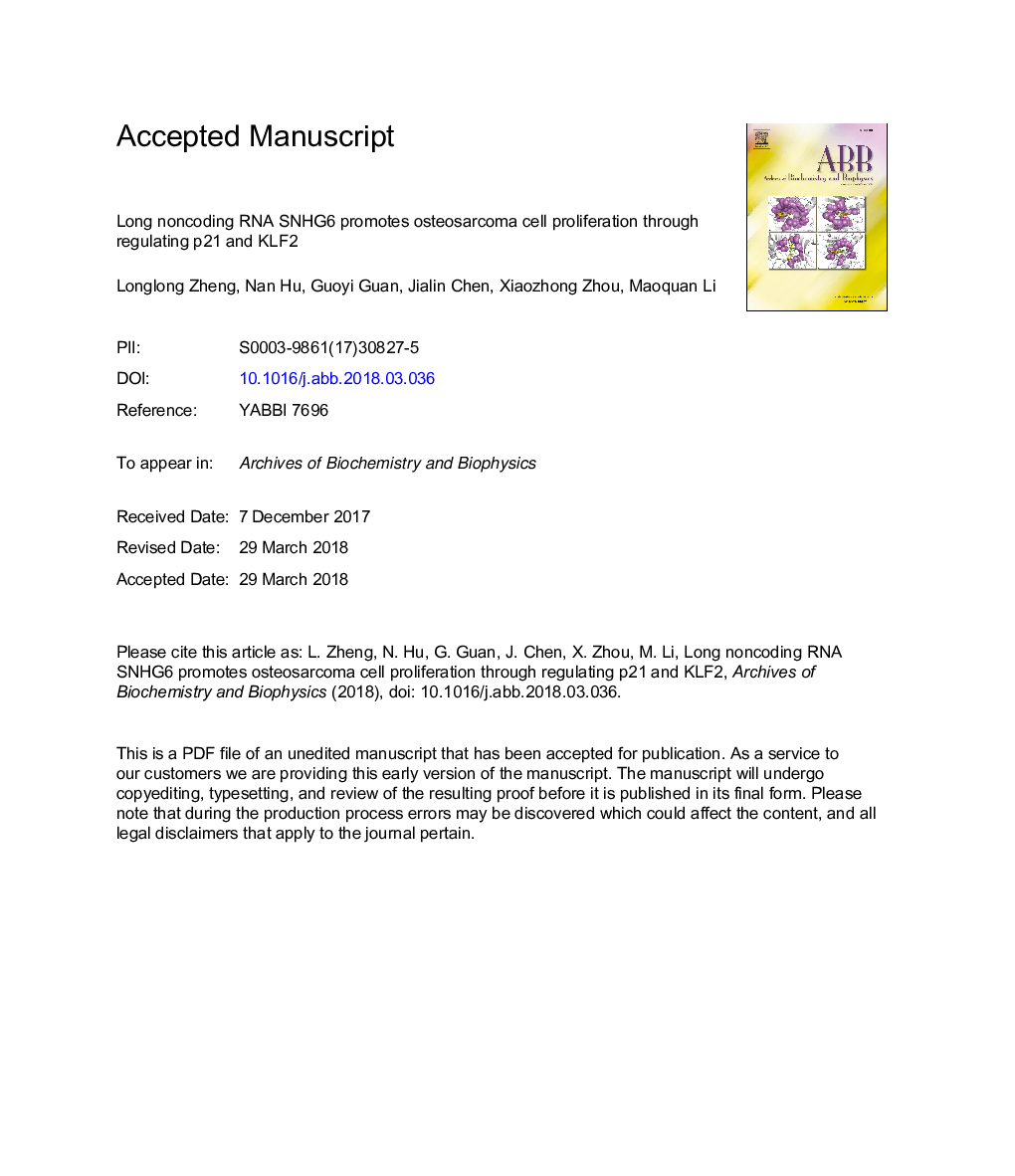| Article ID | Journal | Published Year | Pages | File Type |
|---|---|---|---|---|
| 8288606 | Archives of Biochemistry and Biophysics | 2018 | 33 Pages |
Abstract
The effects of long non-coding RNAs (lncRNAs) on cellular biological processes and even the tumorigenesis have been widely reported. Small nucleolar RNA host gene 6 (SNHG6) has been reported to participate in regulating biological behaviors of multiple types of cancers. Nevertheless, the functions of SNHG6 in osteosarcoma still remain to be uncovered. This study intended to determine the clinical significance and biological functions of SNHG6 in osteosarcoma. It was confirmed by qRT-PCR that SNHG6 was highly expressed in osteosarcoma tissues and cell lines. Highly expressed SNHG6 predicted poor survival rate and advanced clinical stage for osteosarcoma patients, according to Kaplan-Meier method and Cox regression analysis. Loss-of-function assays were performed to examine the effects of silenced SNHG6 on the progression of osteosarcoma, indicating that silenced SNHG6 suppressed cell proliferation through inducing cell cycle arrest in G0/G1 phase and causing cell apoptosis. In vitro assays exposed the potential oncogenic role of SNHG6 in osteosarcoma, further affirmed by in vivo nude mice assays. Mechanistic assays demonstrated that SNHG6 was negatively correlated with p21 and KLF2 in osteosarcoma. And biological functions of SNHG6 in osteosarcoma were realized through regulating p21 and KLF2. Collectively, SNHG6 was a new type of molecule involving in the progression of osteosarcoma.
Keywords
Related Topics
Life Sciences
Biochemistry, Genetics and Molecular Biology
Biochemistry
Authors
Jianwei Ruan, Longlong Zheng, Nan Hu, Guoyi Guan, Jialin Chen, Xiaozhong Zhou, Maoquan Li,
